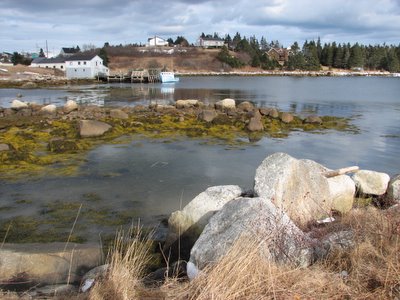Why won't the Canadian Government put an end to bottom trawling?
12 Comments Published by CBEMN on Friday, November 10, 2006 at 5:39 PM.
Learn more here....

The Blog was initiated as part of the inaugural "Sustainability Across the Curriculum" workshop, held at SMU on May 12, 2010. This is part of the Teacher Scholar programme for 2010-2011. If you have any posts, curriculum, ideas or inspired content that you would like to include, please send it to Dr. Cathy Conrad, the 2010-2011 Teaching Scholar, Associate Professor of the Department of Geography. I look forward to moderating this site and linking useful and relevant information. I hope you find it useful!
© 2006 Ocean Use and Management | Blogger Templates by GeckoandFly.
No part of the content or the blog may be reproduced without prior
written permission.
~It's a shame that the only thing some people care about is the quantity and money they will receive from something. People should start caring about our planet not only now but for future generations to come. If they destroy the oceans bottom and over fish now, what will be left in the future?
Having gone through most of stuff linked to in this post I'd have to say a link to the government side of things would be nice. I'm seeing a lot of information about why bottom trawling is unsustainable, but nothing about why the government isn't suporting a moratorium. If I've missed something please let me know.
Katie;
it is frustrating and these topics have such complicated ways of being sorted out, unfortunately.
Christopher;
Excellent point: here is a good place to start:
http://www.dfo-mpo.gc.ca/media/infocus/2006/20061110/faq_e.htm
Cathy
Thanks Cathy.
Unfortunately the article doesn't provide an answer to the question: "Why won't the Canadian Government put an end to bottom trawling?"
All too often, popular politics seems to be having far too great an influence on our environment. If the Harper government doesn't believe protecting our ocean ecology from bottom trawling will result in a worthwhile voter popularity increase, they won't bother. (Until they've exhausted the resource, of course.)
Ben;
Many employees of DFO are opposed to bottom trawling but because "our" government will not act, as you say, this is the "official" stance that they take on the matter.
I think that it is awful that the UN can not come to a global agreement regarding bottom trawling. On a different note, it makes me think of the new regulations regarding the publications of pollution emmissions from factories. Why do we let these global destroying activities go on?
When this was in the media a while back, I could't believe that John Risley from Clearwater was quoted denying the damaging effects of bottom trawling.
Adam,
Really?? Have anymore information on that?
I think we'll spend a class on bottom trawling or make it an option for the case study assignment.
What do you think?
Cathy
I find it very discouraging that a country like Canada, which I used to think could be proud of it's international standing on environmental issues, is slipping in the eyes of the UN. We're now at the bottom of the environmental progress ladder; farther down than the Unnited States! The public needs to have a stronger voice to wake up the government and let them know that it's not ok to be bottom trawling, and it's not ok to have emissions standards that don't come into effect for 20 years!
I think bottom trawling would be an excellent option for the case study assignment. This has been an area that I have been concerned about ever since I first learned about it. I think this a big problem facing our oceans.